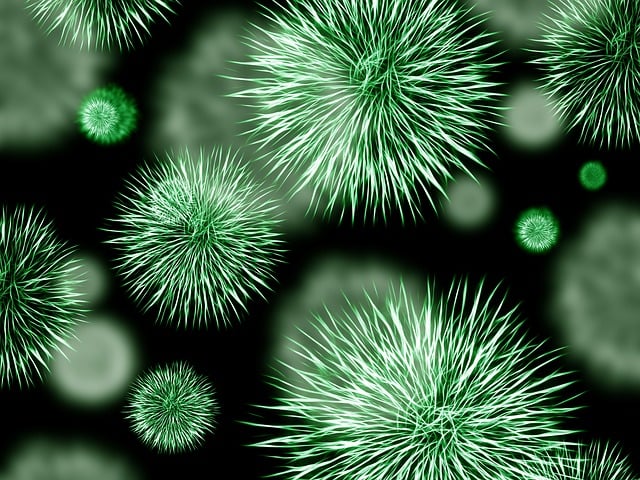Given the advance of the monkeypox outbreak, for which at least 18,000 positive cases have already been registered in 78 countries around the world, the World Health Organization (WHO) called for “reducing the risk of being exposed.” To contain the expansion of the virus - which is distributed 70% in Europe and 25% in America and which also caused 5 deaths in Africa - the United Nations health agency developed specific advice.
The WHO highlighted that some cases have been identified through sexual health clinics in communities of homosexuals, bisexuals and other men who have sex with men. At the same time, he indicated that transgender and gender diverse people may also be more vulnerable in the context of the current outbreak. But he clarified that it is important to keep in mind that the risk of monkeypox is not limited to men who have sex with men, but anyone who has close contact with someone who is infectious is at risk.
However, as the virus is being identified in these communities, learning about monkeypox, how it spreads, and how a person can protect themselves will help ensure that as few people as possible are infected and the outbreak can be stopped. To achieve this goal, the WHO prepared a document with information.
What you should know:
• This disease is contracted through close physical contact with someone who has symptoms, which includes touching and being face to face.
•Monkeypox is spread by close skin-to-skin contact during sexual intercourse, including kissing, touching, oral sex, and penetrative sex, with someone who has symptoms. Avoid close contact with anyone who has symptoms.
• Symptoms include: rash or rash with blisters on the face, hands, feet, eyes, mouth, or genitals; fever; swollen lymph nodes; headaches; muscle pains; lack of energy.
• People should never be stigmatized because of an illness. Anyone can get or transmit monkeypox, regardless of their sexuality.
To protect yourself and others:
• Isolate yourself at home and talk to a healthcare worker if you have symptoms.
• Avoid skin-to-skin or face-to-face contact, including sexual contact, with anyone who has symptoms.
• Wash your hands and clean touched objects and surfaces regularly
• If you are in close contact with someone who has symptoms, wear a mask.
Answers to frequently asked questions about monkeypox:
Can monkeypox spread through sex? Monkeypox is spread by close skin-to-skin contact during sexual intercourse, including kissing, touching, oral sex, and penetrative sex, with someone who has symptoms. The monkeypox rash is sometimes located on the genitals and mouth, which is likely to contribute to transmission during sexual contact. Mouth-to-skin contact where there are skin or oral lesions could cause transmission of the virus. Avoid close contact with anyone who has symptoms. It has not yet been determined whether monkeypox can be spread through semen or vaginal fluids. People who have symptoms should avoid sexual contact with others and, until more is known, should continue using condoms after they recover. Sex is not the only means of transmission, as the disease can also spread through other types of close contact.
How can I protect myself against monkeypox? Reduce your risk by avoiding close contact, including sexual contact, with people who have confirmed monkeypox or are suspected of having the disease. If you need to have close contact with someone who has symptoms, encourage them to self-isolate or cover any skin breaks if they can (for example, with a light bandage or clothing over the rash). When you are physically close to each other, both of you must wear a medical mask. Avoid skin-to-skin contact whenever possible and wear disposable gloves if you have direct contact with lesions. Wash your hands regularly with soap and water or rub them with hydroalcoholic gel, especially after contact with the infected person, their clothing, sheets, towels and other articles or surfaces that you have touched or may have come into contact with, your rash or respiratory secretions (e.g., utensils, dishes). Wash clothing, towels, sheets, and cutlery and dishes in warm water and detergent. Put on a mask when handling clothing or bedding. Clean and disinfect all contaminated surfaces and dispose of contaminated waste (e.g., dressings) appropriately.
In this outbreak, some cases have been identified in communities of men who have sex with men. Because? Monkeypox is transmitted from person to person by direct contact. The risk of contracting monkeypox is not limited to men who have sex with men. Anyone who has close contact with someone who is infectious is at risk. One reason why reports of monkeypox cases are currently being reported in sexual health clinics in communities of men who have sex with men in this outbreak may be because this demographic group displays positive health care-seeking behavior. health. Monkeypox rashes can resemble those of some sexually transmitted diseases, such as herpes and syphilis, which may explain why these cases are detected in sexual health clinics. It is likely that as knowledge expands, cases will be identified in the broader community.
Tips
• If you have sex with multiple partners, get tested regularly for sexually transmitted infections and take pre-exposure prophylactic measures when available. If you have symptoms, seeking health advice regularly and quickly will help you get treatment if necessary and prevent anyone else from becoming infected.
•Remember: Condoms may not prevent monkeypox, but they can prevent other sexually transmitted infections.
















